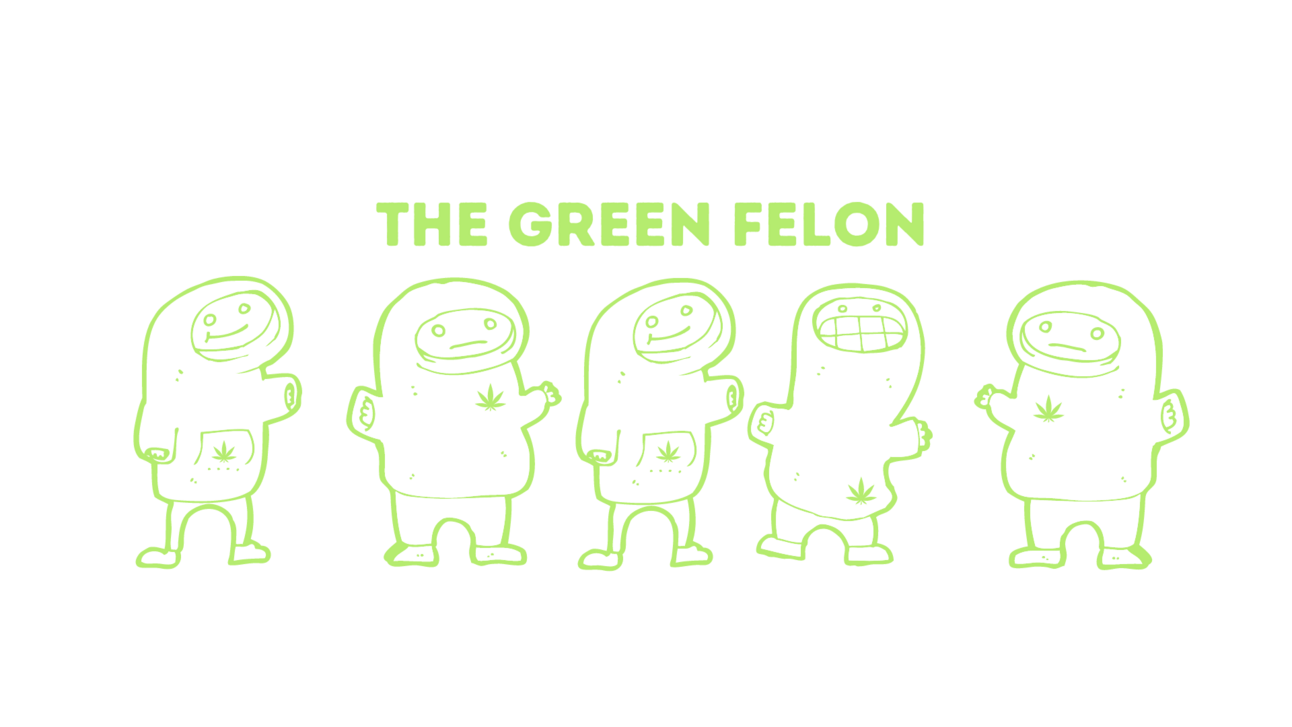Join over 4 million Americans who start their day with 1440 – your daily digest for unbiased, fact-centric news. From politics to sports, we cover it all by analyzing over 100 sources. Our concise, 5-minute read lands in your inbox each morning at no cost. Experience news without the noise; let 1440 help you make up your own mind. Sign up now and invite your friends and family to be part of the informed.

News Highlights:
Glass Pharms (United Kingdom 🇬🇧): Glass Pharms produces carbon-neutral indoor cannabis by sourcing power 🔌 and heat from an adjacent anaerobic digestion plant, aiming to set a precedent for sustainable horticulture 🌲. The Guardian
Silly Nice (New York 🗽): Silly Nice, a Black- and veteran-owned brand, partners with Sana Packaging to implement sustainable, American-made 🇺🇸 packaging, reducing reliance on overseas materials and promoting circular ⭕️ economy practices. Cannabis Business Times
Earthy Now (North Carolina 🏀): Earthy Now offers a range of hemp-derived products, emphasizing organic farming 🚜 methods and sustainable packaging to minimize environmental impact 💥. Earthy Now

Quick Read:
Sustainability Revolution: The cannabis 🪀 industry, once notorious for environmental degradation, is pivoting toward regenerative agriculture 🌾, biodegradable solutions 🛍️, and carbon-neutral operations.
Top Pioneers: Brands like Flow Kana, Wana Brands, and Aster Farms 🍇 exemplify the future, combining renewable energy usage ⚡, ethical sourcing, and eco-friendly certifications 📜 to redefine cannabis production.
Green Certification Standards 🏅: Authenticity is paramount: certifications such as Sun+Earth 🌱, Clean Green 🧼, and USDA Organic are critical markers separating genuine sustainable companies from superficial greenwashing tactics.
Economic Imperatives 💼: Eco-conscious cannabis brands are not just altruistic; they capitalize on soaring high-search terms like "organic cannabis products" 📈 and "carbon-neutral marijuana" to attract investors and dominate emerging green markets.
Challenges and Future Trends: While vertical farming 🏗️, blockchain verification, and living soil techniques gain traction, obstacles like regulatory fragmentation 🛂 and inflated costs 💸 must be navigated for eco-leaders to prevail.

Eco-Friendly Cannabis Brands 🃏 to Watch
In the verdant 🌳 corridors of cannabis commerce, an urgent 🕒 evolution is quietly reshaping the industry: eco-conscious cultivation and sustainable branding. As legalization unfurls across continents 🌐, consumers are no longer content with merely high-quality products—they demand accountability, transparency, and a genuine 🌟 commitment to environmental stewardship. Today, we spotlight the avant-garde cannabis brands pioneering 🌇 eco-friendly initiatives, reimagining what it means to be green in more ways than one.
Regenerative cannabis can win in the marketplace—just like craft beer will soon overtake mass market beer.”
Why Sustainability in Cannabis Matters 🌎
The cannabis industry, despite its meteoric rise, has historically harbored a heavy carbon footprint 🚶. Traditional indoor grows devour electricity 🔦, while overuse of water resources 🌧️ and synthetic fertilizers devastate ecosystems. Conscious brands are flipping 🔄 that narrative, turning a disruptive eye toward regenerative farming, biodegradable packaging, and net-zero facilities 💚.
As more consumers prioritize "organic cannabis 🌶️ products," "sustainable cannabis brands," and "carbon-neutral marijuana" in their searches, the brands embracing eco-responsibility 🚡 aren't just saving the planet—they're capturing market share.
Leading Eco-Conscious Cannabis Brands to Watch 🌸
Let's scrutinize some exemplary 🔎 companies blazing a trail for the rest of the industry:
Brand Name | Eco-Friendly Initiative | Why It Matters |
|---|---|---|
Sun+Earth Certified | Grown entirely under the sun 🌞, without chemicals or fossil fuels | Eliminates carbon-heavy indoor farming |
Flow Kana | Partners with small, sustainable farmers in Northern California | Supports regenerative agriculture 🌴 |
Wana Brands | Committed to 100% recyclable packaging and carbon-neutral production | Reduces landfill waste |
Aster Farms | Water-efficient outdoor growing techniques 🌺 | Conserves precious natural resources 🌄 |
Cresco Labs | Green building certifications and energy-saving practices 📝 | Promotes energy efficiency |

What Makes a Cannabis 🍀 Brand Truly "Eco-Friendly"?
Beyond marketing buzzwords, authentic 👅 eco-friendly cannabis brands exhibit measurable actions:
Water Stewardship 🌧️: Utilizing drip irrigation and rainwater catchment.
Renewable Energy Usage 🌞: Powering operations with solar or wind energy.
Biodegradable Packaging 🔺: Swapping plastics for hemp or plant-based materials.
Ethical Supply Chains 🌻: Partnering with responsible local farmers.
Carbon Offsetting ☁️: Investing in reforestation projects and clean energy credits.
Brands pursuing certifications like Sun+Earth, Clean Green 🌚, or USDA Organic demonstrate commitment far beyond perfunctory gestures.
The Economic 💶 Incentives of Going Green
It would be an error 🔴 to view eco-initiatives solely through a moral lens. There are tangible economic advantages for cannabis companies embracing sustainability:
Consumer Preference 👏: Eco-friendly products often command higher price points.
Regulatory Readiness ✅: Compliance with emerging green regulations will be easier.
Operational Efficiency: Renewable energy reduces long-term utility costs 🔹.
Investor Appeal 🤑: ESG-focused (Environmental, Social, and Governance) portfolios are booming.
Given the explosion 💣 of high-volume keywords like "green cannabis brands," "organic marijuana," and "sustainable CBD products," businesses ignoring environmentalism may 🔜 find themselves marginalized.

Challenges 🤼♀️ Ahead for Eco-Conscious Cannabis
Even with enthusiasm 💃 mounting, obstacles persist. Land scarcity, inconsistent regulations, and higher upfront costs 💲 for sustainable practices mean that only the nimblest companies will thrive.
Moreover, greenwashing 🈯—a phenomenon where brands feign eco-friendliness without substantive proof—remains a pernicious risk. As a result, educated consumers are demanding authentic certification and verifiable 📑 actions over flashy marketing campaigns.
A Peek 👁 into the Future
If the current trajectory holds ➡️, expect eco-certifications to become as ubiquitous as potency labels. Consumers 🧑🏽 will shop for "low carbon cannabis" the way they now seek non-GMO foods. Meanwhile, innovation in biodegradable vapes, organic soil supplements, and closed-loop 📯 irrigation systems will likely dominate cannabis tech expos by 2030.
Brands aligning early with this wave will not only preserve precious ecosystems 🌊—they'll capture the loyalty of a discerning, future-facing customer base.

Driving 🏍️ the Movement Forward
To truly cement a future 👽 where cannabis and sustainability are symbiotic, companies must continually innovate. Living soil cultivation, vertical farming, and blockchain traceability 🛠️ for eco-credentials are emerging as compelling solutions. Meanwhile, consumer advocacy groups 👥 are raising awareness through certifications, expos, and media campaigns 📰.
As cannabis edges 📐 closer to global mainstream acceptance, sustainability will not be optional; it will be a fundamental expectation 👂. Regulatory bodies across nations are also preparing frameworks to penalize greenwashing and reward authentic stewardship, signaling 🚥 a transformative era for conscientious brands.
For investors 💰, eco-aligned companies represent a prudent long-term bet—especially as millennial and Gen Z consumers 👶 dominate future purchasing power with their insatiable appetite for purpose-driven products.
Ultimately, the green revolution 🔰 will not just be about the bud itself but about cultivating a more harmonious planet. The cannabis industry’s greatest legacy might not merely be legalization, but regeneration—proof that business can heal 🏩 as well as profit.
If you had to crown 👑 one brand as the ultimate eco-champion 🗺, who would it be—and why?
🙅🏻♂️ 🙅🏾♀️ Avoid Burnout ❤️🔥

The information provided in this newsletter is for informational purposes only and does not constitute medical, legal, or professional advice. Always consult with a qualified professional before making any decisions based on the content shared here.



